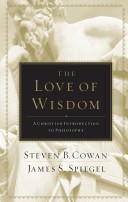One of the really cool perks to being a Research Assistant to a NT scholar is that I occasionally get whatever books he either 1) has read and no longer needs, 2) has extra copies of, or 3) doesn’t want. One of the 3 books that I received today was Michael F. Bird’s Introducing Paul. Besides being one of my favorite bloggers, Michael Bird is a great scholar who is really engaging in his writing [and by the way-I didn’t receive the book b/c it wasn’t any good or b/c this particular professor did not like it, in case you are reading Michael!]. His material is extremely relevant and lucidly presented, and this book (intended as an introduction to Paul for college students) is no exception. Below is an awesome (& rather hilarious!) tidbit that I came across today concerning the strangeness of Paul’s claims to first-century hearers. We would all do well to remember how unusual the claims concerning Christ are. It is easy for us to this side of 2000 years of Christian history to see the Christian claims as “old hat.” Bird writes:
Imagine you are walking through your local university or college and hear in the quad an elderly man from South America telling people loudly about God’s love and salvation. He announces the ‘good news’ of Carlos Hernandez. He recounts hous Carlos was a Peruvian peasant attestedy by man might deeds of power and miracles and who proclaimed the end of the world. But the chief men in the city of Lima feared his popularity with the peasant class, falsely accused of being an Al-Qaeda terrorist and had him killed by electrocution. But a week later, this Carlos was raised from the dead and was seen by several American tourists. Then the man declares that ‘this Carlos was electrocuted for your sins and salvation is found through faith in him’. And then, to make matters worse he starts singing:
Carlos was there on that horrible chair
They tied him down with bolts and then zapped him with 40,000 volts
It was for you our saviour fried and died
Despite the fact that his chair caught on fire, this one is God’s true Messiah
The wisdom of the world has been refuted because Carlos was electrocuted
He is my saviour and my lamp, because he absorbed every deadly amp
Now I know that God does care, ’cause he sent Carlos Hernandez to the electric chair



 Posted by Clinton
Posted by Clinton 


